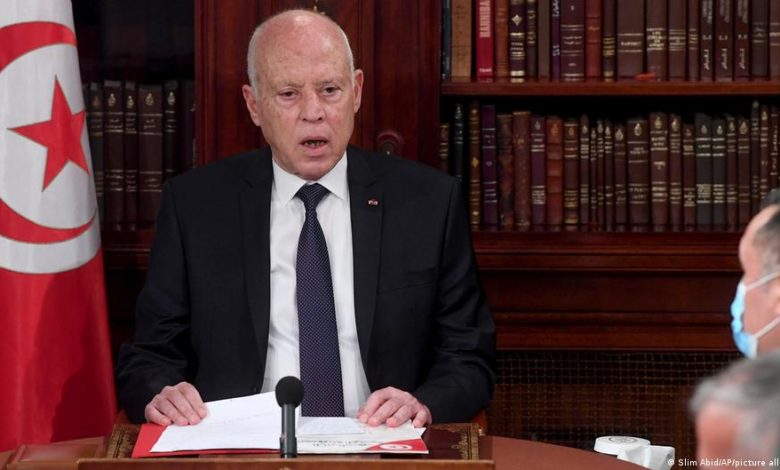Tunisia: Kais Saied puts an end to the bonuses and privileges granted to members of the Superior Council of the Judiciary

Tunisian President Kais Saied issued a decree on Wednesday calling for an end to the privileges granted to members of the Supreme Judicial Council.
Saied “signed a decree today amending the Basic Law on the Supreme Judicial Council, which stipulates an end to the grants and privileges granted to its members”, the presidency said in a statement.
In response, the Supreme Judicial Council announced on Thursday that its members “will continue to carry out their duties regardless” of President Kais Saied’s decree to end their privileges.
The Supreme Council of the Judiciary is a constitutional body responsible for monitoring the proper functioning of the judiciary and for abusing the judiciary.
The head of the council, Youssef Bouzakher, explained in a statement to Shams FM (private) radio: “We hope that this presidential order will not be a means to put pressure on the Supreme Judicial Council”, he said, adding that “the Council enjoys self-administration in accordance with the constitution”.
“Council members will continue to carry out their duties regardless of the presidential decree that ends the privileges and grants to council members”, he said.
“The plenary session is in session and will present its opinion on the decree, and the constitutional structure of the judiciary cannot be compromised”, he said.
More recently, there has been a debate in Tunisian legal circles over the “independence of the judiciary”, especially in light of President Saied’s statement that the judiciary is “a function of the state” and his allusion to dissolving the Supreme Judicial Council.
The debate over the independence of the judiciary has flared up since Justice Minister Leila Jaffel announced last October that a draft law on the Supreme Judicial Council had been prepared, to the chagrin of many judges.
Judges dismissed the Minister of Justice’s statements as interference in the judiciary. President Saied denied this, stressing that the preparation of this project will involve the judges themselves.
During his recent speeches, Saied addressed the judiciary and often stressed that the judiciary is “the judiciary of the state”, that it is independent and has no authority other than the law, and that “there is no way to cleanse the country except with a just judiciary, and judges above all suspicions”.
The Supreme Council of the Judiciary is a constitutional body responsible for monitoring the proper functioning of the judiciary and for abusing the judiciary.
Since July 25th, Tunisia has witnessed a severe political crisis following Saied’s exceptional measures, the most prominent of which were freezing the parliament’s powers, lifting the immunity of its deputies, abolishing the Constitutional Control Authority, passing legislation by presidential decrees, dismissing the prime minister and forming new ones.
The majority of the country’s political forces reject these decisions, considering it a “coup against the constitution” and an infringement on rights and freedoms. Other forces support these decisions, which they see as “a correction to the course of the 2011 revolution” that toppled then president Zine el-Abidine Ben Ali.











